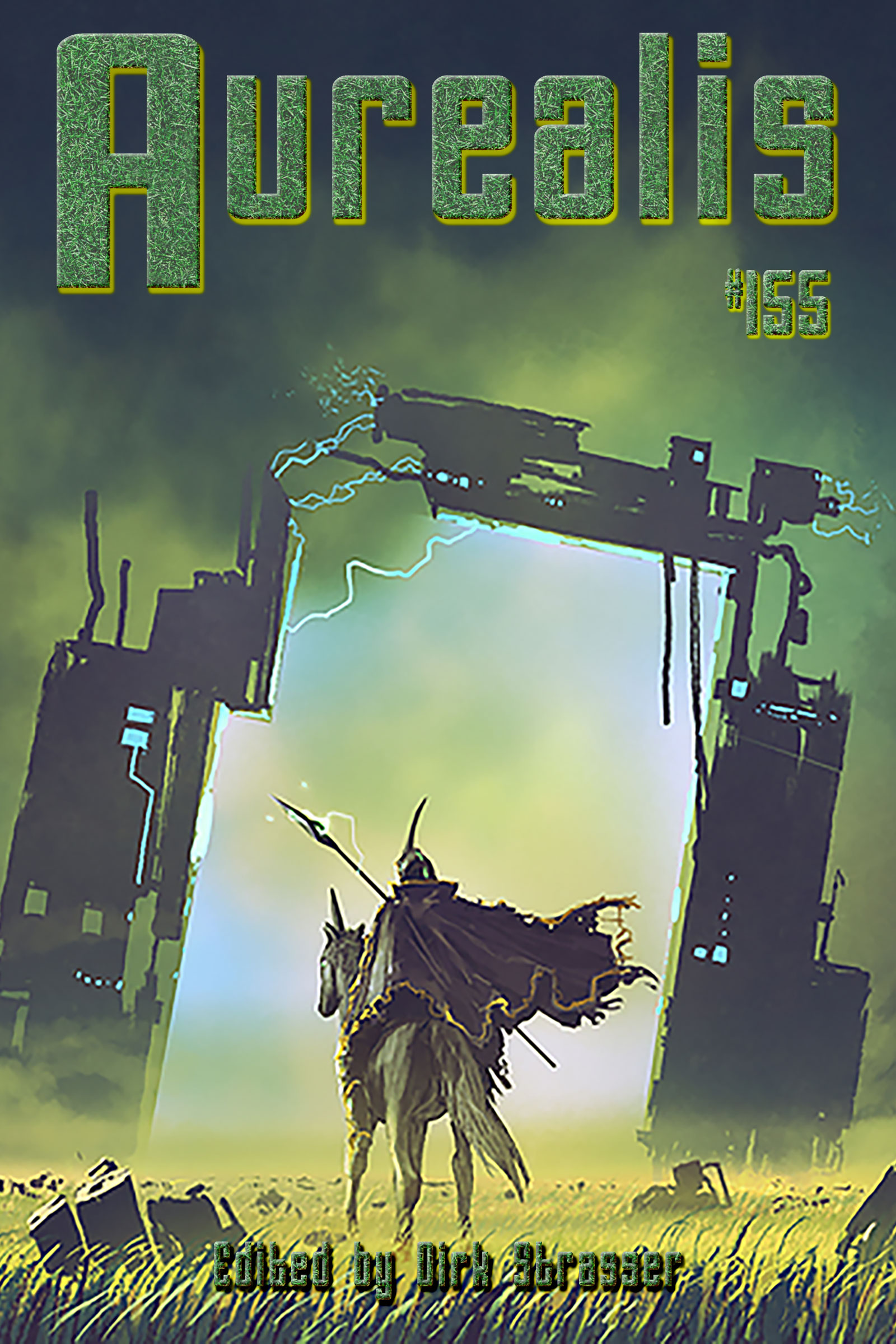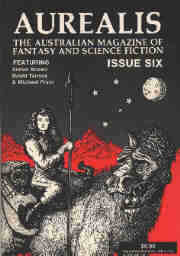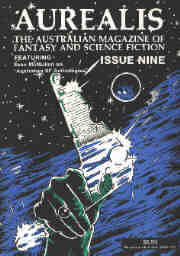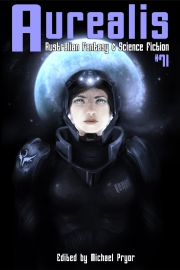Aurealis #155
$3.99
Take a deep dive into Aurealis #155 with Baden M Chant’s ethereal, and elegiac ‘The Winding-Sheet’, Greg Foyster’s futuristic reimagining in ‘Shitmining’, and the bizarre ecosystem of Jared Millet’s ‘Bigger Fish’. Then explore the Soul and Emotional Intelligence in Humans and Androids, the Appeal of Time Travel and the use of colour in Titane.
- From the Cloud — Dirk Strasser
- The Winding-Sheet — Baden M Chant
- Shitmining — Greg Foyster
- Bigger Fish — Jared Millet
- The Soul and Emotional Intelligence in Humans and Androids — Matthew Nelson
- Timeless – The Appeal of Time Travel — Matthew Harrison
- Titane and the Use of Colour in Film — Claire Fitzpatrick
What’s the longest SF novel you’ve read? In a genre known for worldbuilding and galactic-size plots, SF is well-represented in the long novel stakes. Still, I’ve always been a little reluctant to tackle really long novels. They better be bloody good!
Here are some of the most well-known SF door-stoppers:
Tolkien’s The Lord of the Rings is up there at 470,000 words. It was the very first mega-long book I read. I was twelve years old. Although I was a voracious reader, the books I had read up until that time were more the Narnia and Enid Blyton size. Yes, The Lord of the Rings created the fantasy trilogy phenomenon, and you can quibble that it’s really three books, but it was only released in three volumes originally because of the paper shortage after World War II. I read it in the intended form and in which it has generally been published since, which is as a single book. It’s often cited as the longest genre novel of all time—but it isn’t.
It is pipped by Stephen King’s The Stand, which I’m reading at the moment, at 472,376 words. Interestingly, the original published version in 1978 wasn’t that long at 322,000 words, but the Kingster decided to publish the version he had originally written before his publishers made him cut it. I’m really enjoying it, but it’s taking me a lot longer to get through because life seems to get in the way now more than it did when I was twelve. I wonder whether he knew that by publishing the extended version, he would be overtaking Tolkien? King has form in the door-stopper genre: It was 445,134 words.
George R R Martin cracked the 400,000-word mark twice in his Song of Ice and Fire series with A Storm of Swords at 422,000 words and A Dance with Dragons at 420,000 words. Apparently, he was worried about the length in the earlier books in the series and took great pains to keep them down to a modest 300,000 words by moving chapters to the next volume. That process will eventually catch up with you, I guess. Since we’re still waiting for the series conclusion, I think it’s too early to discount his efforts in the largest genre book of all time stakes.
Others in the over 400,000 category are Neal Stephenson’s Cryptonomicon (415,000), Diana Gabaldon’s An Echo in the Bone (the seventh Outlander novel) (402,000), and Patrick Rothfuss’ The Wise Man’s Fear (400,000).
But if you’re looking for the longest SF novels of all time, it can sometimes come down to genre definitions and whether you only include best-sellers. Here are some of the contenders: Tad Williams’ To Green Angel Tower (520,000), Diana Gabaldon’s The Fiery Cross (502,000) and A Breath of Snow and Ashes (501,000), Mary Gentle’s Ash: A Secret History (500,000), and Brandon Sanderson’s Oathbringer (495,000).
Of course, we all know size ultimately doesn’t matter. Although, you have to admire writers who can produce high-quality writing over such enormous word lengths. At the other end of the scale are the perfectly polished gems we call short stories. Read some of the now. It won’t take you long.
All the best from the cloud!
Dirk Strasser
From The Winding-Sheet by Baden M Chant:
‘What do you remember?’
‘Warm. Dark. Susurration. Humus. Leaves.’
‘What did you do?’
‘I pushed.’
From Shitmining by Greg Foyster:
I first see the island from the air, arriving the way the birds do. Ten thousand cormorants scatter to make room as our helicopter shudders in the ferocious winds and then perches on the uneven surface below. Even while I’m waiting for the blades to stop rotating and the dust to settle, my nostrils wrinkle up in disgust. So the rumours about the awful smell are true.
From Bigger Fish by Jared Millet:
‘Here’s the scoop,’ Hector said with a smile. ‘The planet Brobdin wants to eat you. That’s what it does…
From The Soul and Emotional Intelligence in Humans and Androids by Matthew Nelson:
In Kazuo Ishiguro’s Klara and the Sun (2021), Klara is an android who has feelings. This is hardly the first time that science fiction has bestowed upon an android the ability to express an emotion…
From Timeless – The Appeal of Time Travel by Matthew Harrison:
Time travel is an enduring science fiction trope. From H G Wells’s The Time Machine (1895), through Doctor Who’s Tardis to the time-busting warp speed of Star Trek’s USS Enterprise, there is a special thrill to the idea of travelling through time. Yet what is the appeal, exactly?
From Titane and the Use of Colour in Film by Claire Fitzpatrick:
Whatever your ideas or opinions about the film Titane (2021), there’s no denying the work of a demented visionary in full command of her imagination.





